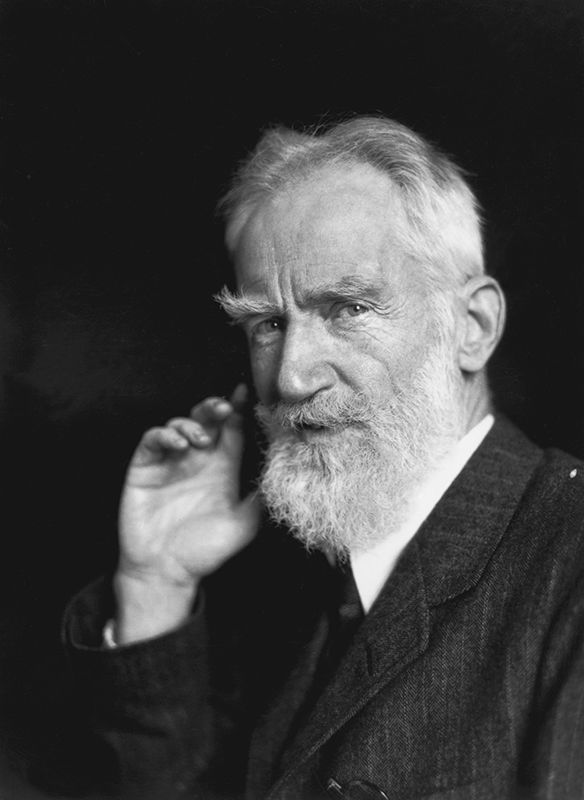“You see things, and you say why? But I dream things that never were: and I say, why not?” If you are of a certain age you might remember Robert F. Kennedy paraphrased this quote as part of his 1968 tragedy-ending presidential campaign. Its intent was to inspire the electorate, weary of war and civil unrest, and think of higher things. But if you knew the genesis of this quote, who wrote it and, more importantly, who he wrote it for, you might have to rethink things.
Social media produces a lot of quotes that produce a lot of heat, but not much light. And anyone who has even the most casual relationship with Facebook has seen their fair share of what are called memes.
Even the very word “memes” is a kind of misquote. It was hijacked from the noted celebrity atheist and scientist Richard Dawkins. The word first appeared in Dawkins’ book “The Selfish Gene” and he formed it to help identify a behavior or fashion that spreads from one person to the next in an evolutionary context. Now you say the word meme to someone and they are more likely to think of a photo of an angry cat.
Marie Antoinette has been famously misquoted saying “Let them eat cake” in a supposed response to starving peasants without enough bread to eat. Only she never said it. It was actually a paraphrasing of a quote from French philosopher Jean-Jacques Rousseau and it had nothing to do with Marie Antoinette or cake. Bogart never tells Sam his piano player to “Play it again Sam” in Casablanca. It’s close, Bogie actually says “Play it Sam.” When Christians are being slaughtered at an alarming rate around the globe, these petty cultural glitches don’t seem like much. But the amount of misinformation and misquotations that swirl all around us have got to have some kind of cumulative effect sooner or later.
As Francis Bacon said, “Knowledge is Power.” Actually, what he really said was ipsa Scientia potestas est, which translates to “knowledge itself is power.” But let’s not split hairs … which I’m sure is another mangling of another quote.
But, like history and current affairs, context is everything and when quotes are used outside of their context they can be creased folded and mutilated into not just meaning something different, but meaning the exact opposite of their original intent.
Which brings us back to “You see things, and say why…” The words were written by George Bernard Shaw, one of the most famous and noteworthy dramatists from the not so distant past. Shaw straddled both the 19th and 20th century literary horizons and he was equally famous as being one who held a God-centered view of existence in as much disdain as the 21st century incarnation of this sentiment found in the likes of Richard Dawkins.
It would be fair to frame Shaw’s view of God and religion as hostile, but you at least have to give him points for courage because unlike today, this animus toward all things religious and the divinely ordered was scandalous in Shaw’s day whereas it is a badge of entry to the modern day salons of the intelligentsia.
Despite his well-earned reputation as a hedonist, he was a profound and prolific dramatist with a list of accomplishment like Ceaser and Cleopatra, Major Barbara and Pygmalion. He is also the only person who ever won a Nobel Prize and an Oscar.
And he was the progenitor of the quote, “You see things, and you say why? But I dream things that never were: and I say, why not?” These words came from Shaw’s brain, but they are not words from his lips, but rather words spoken by a character in a play written by Shaw. When you’ve written your first drama in the 1870s and your last one in 1950, chances are you’ve written a lot of things that nobody has ever heard of and that is the case with Shaw’s play “Back to Methuselah.”
It’s really five plays with loose connective tissue revolving around the evolutionary process of man to an enlightened being. It begins in 4004 BC, where Shaw places the Garden of Eden, and ends in the year 31,920 AD, in a segment titled “As Far as Thought Can Reach.” Shaw was not humble in his praise of his work, which is kind of the ultimate man-as-his-own-god and own source of inner enlightenment. I am not nearly smart enough to struggle through this stuff and, to be frank, I gave up very quickly.
But it is in the first part of the play, in the Garden of Eden, where Shaw exposes maybe more about himself than he would have liked and betrays his affection for one particular side. He does this most powerfully not just with the quote — “You see things, and you say why? But I dream things that never were: and I say, why not?” — but by who he has saying it.
It’s a promise of limitless horizons from a character who refuses to be bound by fashion or some kind of made up theology. It is a quote of profound defiance when seen in the context of the play from whence it comes. The Garden of Eden character who speaks these words is the serpent. And you can quote me on that.
Robert Brennan has been a professional writer for more than 30 years, including many years in the television industry.

